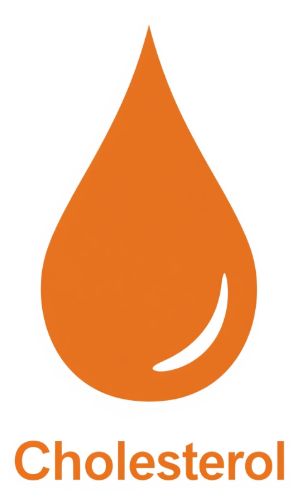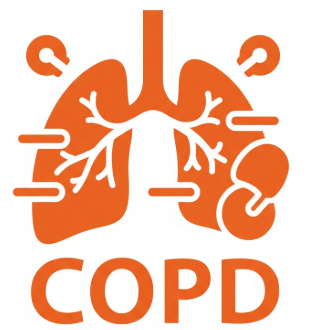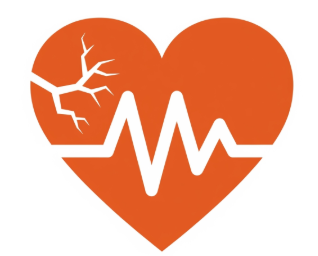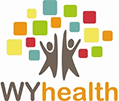Welcome to WYhealth – The Gateway to Healthy Living!

This page is kind of like a friendly map, designed to help you easily find your way around lots of important health information, helpful programs, and great resources here at WYhealth and across Wyoming! We’ve gathered awesome stuff to share with you!
We’ve made sure this page is a jumping-off place to help you explore, learn, and truly live your best and healthiest life! Congratulations on taking care of yourself – and taking care of your health.


This page is organized into three sections:
- Navigate WYhealth – links to other WYhealth webpages to help you find what you’re looking for
- Health Highlights – other Wyoming Department of Health programs that you might find useful
- Find More Health Info… – it’s a quick overview of health topics and where to find more info
Navigate WYhealth
Navigate WYhealth webpages for the information you’re looking for:
- Preventive care for adults – the Adult Preventive Health Care webpage lists out all the preventive screenings you need by sex and age, how to take full advantage of your Medicaid benefits, tips on advocating for your health, and more!
- Preventive care for children – the Well Child Checkups! webpage lists out the checkups children should receive at each age.
- Health during pregnancy – the Your Healthy Pregnancy webpage includes information and resources that are helpful during your pregnancy journey.
- WYhealth Member Materials – the WYhealth Member Materials webpage includes all the materials your nurse care manager might snail mail you if you’re enrolled in the program, depending on your needs. In case you’d like to access that information more quickly, you can click the links and go straight to those materials on your phone or computer.
- Diabetes & Outsmart Diabetes Incentive Program – this webpage is dedicated to information about diabetes and how you can earn gift cards for participating and taking charge on improving your A1C.
- National, State, & Community Resources – this webpage links you to resources within the Wyoming Department of Health as well as other helpful resources that could benefit you – worth checking out!
- Psychiatric Residential Treatment Facility (PRTF) Information – this webpage provides an overview of the PRTFs that are enrolled in Wyoming Medicaid and the process for how a youth could be admitted to a facility.
Health Highlights
NEW! Blood Pressure Program
The Wyoming Department of Health is now offering a new self-monitoring blood pressure program across some counties: Carbon, Fremont, Hot Springs, Laramie, and Washakie. This is a new, FREE program that includes blood pressure self-monitoring, education, and other support that will be provided at no cost to Wyoming adults diagnosed with high blood pressure.
More information about the program, including current locations, can be found by visiting the Wyoming Department of Health’s Healthy Heart Ambassador Program webpage.
Find More Health Info…
Below, you’ll find a short list of important health topics with links so you can navigate to more information!

Mental Health & Depression
According to the World Health Organization, mental health is “a state of well-being in which the individual realizes his or her own abilities, can cope with the normal stresses of life, can work productively and fruitfully, and is able to make a contribution to his or her community.” It includes having a positive mental and emotional attitude based in reality. Mental illnesses are real diseases that can be successfully treated.
How are you doing?
The ebb and flow of life can feel different to different people – causing some to feel distress or that something “just isn’t right.” It’s important to seek help when you start to feel this way. There seems to be a perception that we can “pull ourselves up by the bootstraps” – but that approach doesn’t work for everyone all the time. We all walk a different path and it’s necessary to seek the help of a professional who can work with you through your feelings. There are Community Mental Health Services available to you, regardless of your ability to pay. These are the professionals who can help you through depression, anxiety, and more!
Are you thinking of hurting yourself?
If the answer to that question is anything other than “no” – we need to get you connected with help right now. Please call the National Suicide Prevention Lifeline @ 800-273-8255 (English) or 800-628-9454 (Spanish) or you can even chat with someone if you’re more comfortable.
Please bring up these feelings with your doctor, counselor, or someone you are comfortable talking about your feelings with – they will help you! Sometimes we spin around in our heads and forget that there are people who love us, who need us, and who we matter to that would drop what they are doing in an instant if they knew we needed to talk.
Drugs, Alcohol, & Other Substances
Using substances like drugs and alcohol can hurt your ability to care for any children you have, affect your ability to be the best version of yourself, and can cause physical health problems as well as hurt your ability to meet your responsibilities at work, school, and home. Individuals will often keep using drugs and alcohol even if it’s causing problems in their life – in the short term, these substances make us feel good or cover pain, but hurt us big time in the long run.
A substance use treatment provider is a professional trained to help those using drugs and alcohol and can also help treat root causes of substance use. There are Community Substance Use Treatment Providers available to you, regardless of your ability to pay. These are the professionals who can help you to end dependence on drugs, alcohol, and other substances.

Cholesterol
Cholesterol is a waxy substance that our bodies need to build cells. However, too much cholesterol can cause problems. We get cholesterol in 2 ways. Our liver naturally makes it and we also get it from eating foods from animals such as meats and dairy products. High cholesterol is one of the major risk factors for coronary heart disease, heart attack and stroke. Fortunately, it can be controlled by watching what you eat and exercising regularly.
Learn more about cholesterol – visit the American Heart Association!

Chronic Obstructive Pulmonary Disease (COPD)
Chronic obstructive pulmonary disease (COPD) is a group of lung diseases that cause difficulty with breathing. COPD includes chronic bronchitis and emphysema. It is the third-leading cause of death in the United States and it currently affects about 15 million Americans.
Ever wonder how your lungs and respiratory system works? Find out!
Learning about COPD and its treatments can help you feel more in control. Visit the American Lung Association to learn more.

Heart Failure
Heart failure is a progressive condition that affects millions of Americans. Heart failure doesn’t mean that your heart actually “fails.”
In simple terms, it means your heart can’t pump enough oxygen-rich blood to meet your body’s needs or can’t pump with enough force. Heart failure is often a chronic condition that develops gradually, over many years, with the heart becoming progressively less and less efficient.
In heart failure, the heart muscle is either stiff or weak and doesn’t pump properly. When the heart is stiff, it can’t relax enough to refill, so less blood is available to pump through your body. When your heart muscle is weak, it can’t pump with enough force to circulate enough blood through your body.
Think you or a loved one may have heart failure? Learn more about the signs by visiting the American Heart Association.

Strokes
Stroke is the fifth leading cause of death in the United States and can cause serious disabilities. The good news is that strokes can be prevented and treated. Click on the links below from the Centers for Disease Control to learn more about strokes. Call 911 immediately if you think someone might be having a stroke. Getting fast treatment is important to preventing death and disability from stroke.
To learn more about what causes stroke and what happens during a stroke visit the Centers for Disease Control.

Heart Attack
A heart attack happens when the blood flow that brings important oxygen to your heart muscle gets blocked or cut off. This usually happens because sticky stuff called plaque (made of fat and cholesterol) builds up in your heart’s blood vessels, and sometimes a blood clot forms around it, stopping the flow. If the blood flow isn’t quickly restored, part of the heart muscle can get damaged, but many people survive and can live healthy, active lives with good care and lifestyle changes.
To learn more about heart attacks and how to recognize the symptoms, please visit the American Heart Association.
By using this website, you acknowledge that the State of Wyoming does not endorse any of the sites or services that may be referenced on or linked to on this site. The State of Wyoming will not be responsible or liable for those sites’ content or any loss occasioned by any such content. Other Internet sites or services may have privacy policies or security that differ from the privacy policy or security of the State of Wyoming.
This page was last updated on June 10, 2025.
This information is provided as part of your Medicaid health plan benefits. This information should not be substituted for emergency or urgent care needs. In an emergency, call 911 or go to the nearest emergency room. Certain treatments may not be included in your insurance benefits.
If you have thoughts of hurting yourself or others – call your health care professional, 911, a suicide hotline such as 1-800-SUICIDE (1-800-784-2433), or have someone drive you to your nearest emergency department.
Please, do it now.
You are important. You are loved. You matter.


